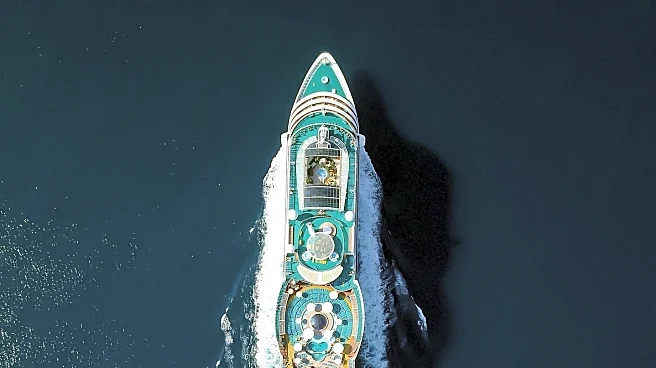What's Happening?
European ports, including Barcelona, are taking significant steps to address overtourism by reducing cruise ship arrivals. This move counters previous expansion plans aimed at accommodating more cruise passengers. The decision comes amid growing concerns about the impact of mass tourism on local environments and communities. Barcelona, a city frequently highlighted for overtourism issues, has announced the closure of two cruise terminals to decrease the influx of visitors. This initiative is part of a broader trend across Europe to promote sustainable tourism practices and preserve the quality of life for residents.
Why It's Important?
The reduction in cruise ship arrivals is a critical measure to mitigate the negative effects of overtourism, which include increased housing costs, rising food prices, and overloaded infrastructure. These issues can make daily life challenging for residents and diminish the appeal of destinations. By limiting cruise tourism, European ports aim to balance economic benefits with the preservation of local environments and communities. This shift towards sustainable tourism practices is essential for maintaining the cultural and historical integrity of popular destinations, ensuring they remain attractive to both tourists and residents.
What's Next?
As European ports implement these changes, other destinations may follow suit, adopting similar measures to manage tourist numbers. The effectiveness of these strategies will be closely monitored, with potential adjustments based on their impact on local economies and communities. Stakeholders, including local governments, businesses, and residents, will need to collaborate to develop comprehensive solutions that address the root causes of overtourism. The success of these initiatives could lead to a broader adoption of sustainable tourism practices worldwide.
Beyond the Headlines
The move to reduce cruise ship arrivals highlights the complex nature of overtourism, which is not solely a numbers game. It underscores the need for a balanced approach that considers the economic, social, and environmental impacts of tourism. Destinations must transition from marketing to management, leveraging technology and collaboration to create resilient tourism models. This shift is crucial for ensuring that tourism remains economically beneficial while preserving the unique characteristics that make destinations attractive.










